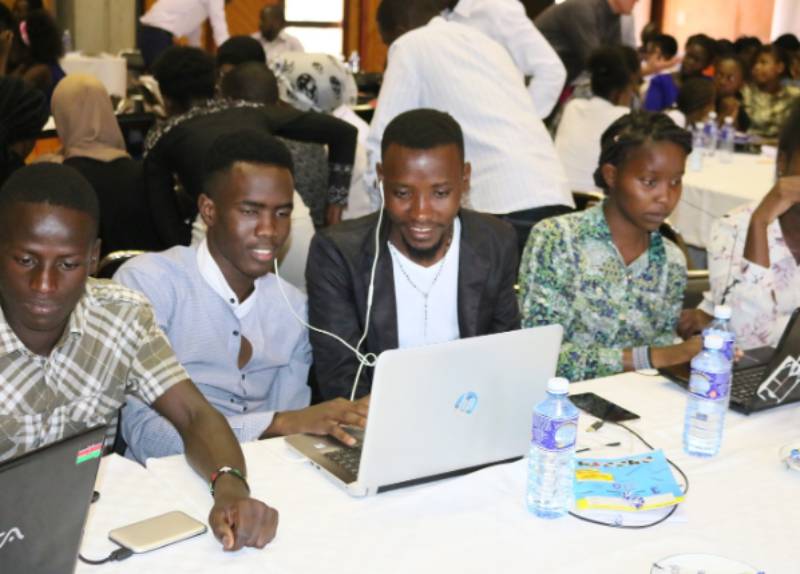
Over 100 students from JKUAT’s School of Public Health, have undertaken an intensive hands-on training on identification, documentation and sharing of health knowledge within Kenyan counties. The students who are set to embark on their field attachments May 2019, are expected to use the knowledge and skills acquired during the workshop to assist counties document successful case studies with potential to foster service delivery within the devolved units.
The training that was staged by the University in partnership with the Council of Governors’ (COG) led Maarifa Centre, is one of the initiatives the CoG, aimed at building capacity of counties to package existing knowledge, experiences and innovations into sharable products.